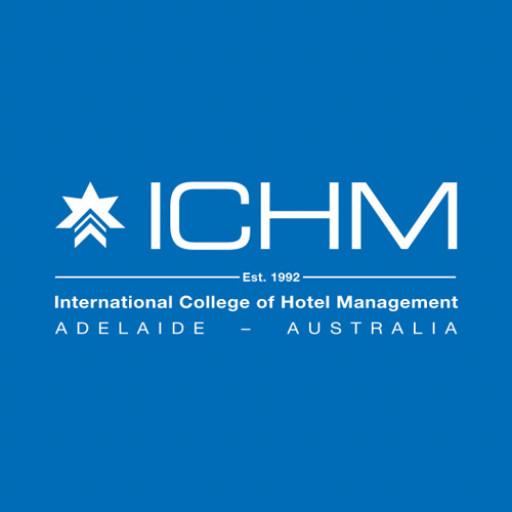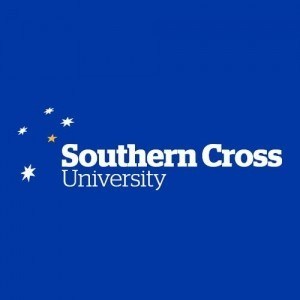The Bachelor of Tourism and Destination Management at Victoria University offers a comprehensive education designed to prepare students for dynamic careers in the global tourism industry. This innovative program combines theoretical knowledge with practical skills essential for managing tourism operations, developing sustainable destinations, and enhancing visitor experiences. Students will explore various aspects of tourism, including hospitality management, event planning, tourism marketing, and cultural heritage preservation, equipping them with a well-rounded understanding of the industry. The curriculum emphasizes sustainable tourism practices, enabling graduates to contribute to environmentally responsible and culturally sensitive tourism development. Through industry placements, internships, and real-world projects, students gain valuable hands-on experience, fostering strong professional networks and enhancing employability upon graduation. The program is delivered by experienced faculty members who bring industry insights and academic rigor, ensuring students are well-prepared for the challenges of the tourism sector. Upon completion, graduates can pursue diverse career paths such as tourism planning, destination marketing, hotel management, event coordination, and tourism consultancy. The program also offers pathways for further study in related postgraduate fields. With Victoria University's focus on innovation and industry relevance, students benefit from cutting-edge facilities, industry collaborations, and a supportive learning environment. Graduates of the Bachelor of Tourism and Destination Management are equipped to make a positive impact on the tourism industry, promoting sustainable growth and cultural understanding across diverse communities and regions worldwide.
The Bachelor of Tourism and Destination Management at Victoria University offers students a comprehensive education designed to prepare them for dynamic careers within the global tourism industry. This program combines theoretical knowledge with practical skills, equipping graduates to excel in areas such as tourism planning, destination marketing, sustainable tourism development, and hospitality management. Throughout the course, students explore the economic, cultural, environmental, and technological factors that influence tourism today, gaining a deep understanding of how to manage and develop tourism destinations responsibly and effectively.
The curriculum is structured to foster critical thinking and innovative problem-solving skills, with coursework covering topics including tourism policy, international tourism, travel and tourism operations, event management, and digital marketing strategies. Students have opportunities to engage in real-world projects, internships, and industry placements that provide valuable hands-on experience and networking opportunities within the tourism sector. Special emphasis is placed on sustainable tourism practices, ensuring graduates are prepared to promote environmentally responsible and culturally sensitive tourism development.
In addition to core modules, students can tailor their learning through electives that focus on areas such as ecotourism, heritage tourism, or entrepreneurship in tourism. The program also emphasizes the importance of communication, leadership, and teamwork skills, preparing students to work effectively in multidisciplinary teams and diverse environments. Graduates of this program are well-equipped to pursue diverse career paths in tourism management, destination marketing organizations, travel agencies, event planning companies, and government agencies responsible for tourism development. By combining industry-relevant knowledge with a commitment to sustainability and innovation, the Bachelor of Tourism and Destination Management at Victoria University prepares students to contribute meaningfully to the growth and responsible management of tourism destinations worldwide.
- Relevant Bachelors/Honours degree
- And/or professional experience
- IELTS overall score of 6.5 and no individual band score less than 6 or equivalent
The Victoria University offers diverse financing options for students enrolled in the Tourism and Destination Management program. International students are encouraged to explore various scholarships, including merit-based and need-based awards, which are applied directly to tuition fees and associated expenses. Domestic students may access government-funded assistance programs, as well as university-specific scholarships designed to support academic excellence and financial hardship. The university also provides flexible payment plans to help manage tuition fee payments throughout the academic year. Students can benefit from financial counseling services offered by the university’s student support center, which provides guidance on funding opportunities, budgeting, and financial planning. Additionally, Victoria University partners with various external organizations and industry stakeholders to offer internships and sponsorships that may include financial support or stipends to assist students in gaining practical experience without financial strain. For postgraduate students, there are research grants and assistance for thesis-related expenses, which can be accessed through university resources or external funding bodies. International students are advised to investigate overseas student loans, scholarships offered by governments or international agencies, and private financial institutions for additional funding sources. The university also promotes the use of part-time employment opportunities, both on and off-campus, which many students leverage to fund their studies while gaining valuable work experience. Overall, Victoria University is committed to making education accessible through comprehensive financial assistance programs, ensuring students can focus on their academic and professional development in the field of Tourism and Destination Management without undue financial burden.
Tourism and Destination Management at Victoria University offers students a comprehensive academic experience designed to prepare them for dynamic careers within the tourism industry. The program emphasizes both theoretical knowledge and practical skills necessary to understand the complexities of tourism systems, destination marketing, sustainable practices, and strategic management. Students learn about the global tourism environment, including the economic, social, cultural, and environmental impacts of tourism activities. The curriculum includes modules on tourism planning, policy development, hospitality management, event management, and digital marketing, ensuring graduates are well-equipped to address contemporary challenges faced by destination managers and tourism operators.
Victoria University’s approach combines classroom learning with real-world industry engagement, including internships, project-based assessments, and collaborations with industry partners. This practical focus enables students to develop essential skills such as communication, leadership, problem-solving, and data analysis, which are highly valued in the tourism sector. The program also promotes an understanding of responsible tourism practices, encouraging sustainable development and cultural sensitivity, which are critical considerations in today's tourism industry.
Students benefit from the university’s strong relationships with tourism organizations, such as travel agencies, hotels, and government tourism departments, providing opportunities for networking and employment. The academic staff are experienced professionals and researchers who bring current industry insights into their teaching, facilitating a learning environment that is both innovative and industry-relevant. Additionally, Victoria University offers resources such as dedicated tourism labs, industry conferences, and study abroad programs, broadening students' perspectives and enhancing their global understanding of tourism management.
Graduates of the Tourism and Destination Management program are prepared for careers in various sectors including destination marketing organizations, tourism boards, event management companies, hospitality groups, and consultancy firms. They are equipped to work in roles involving tourism planning and development, sustainable tourism management, visitor experience enhancement, and policy advisory. The program’s flexible structure allows students to tailor their studies towards specific interests within the field, making it an ideal choice for those seeking a versatile and impactful career in tourism.









